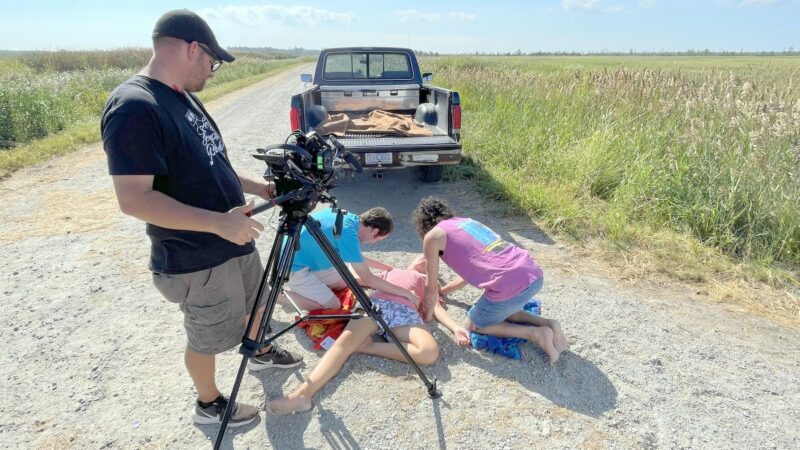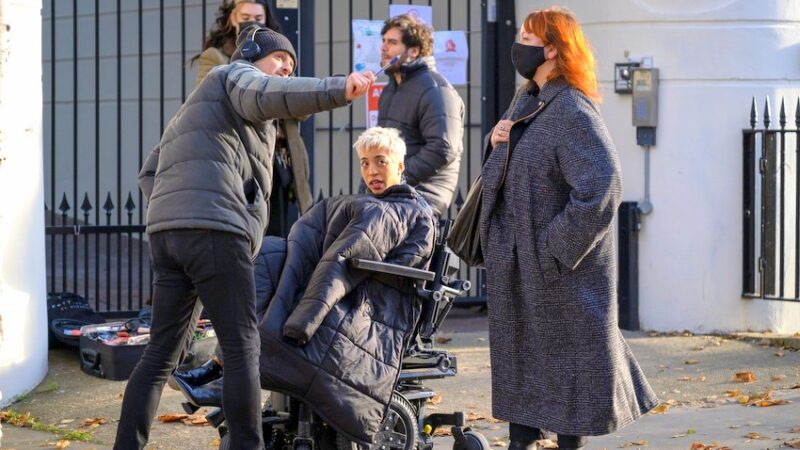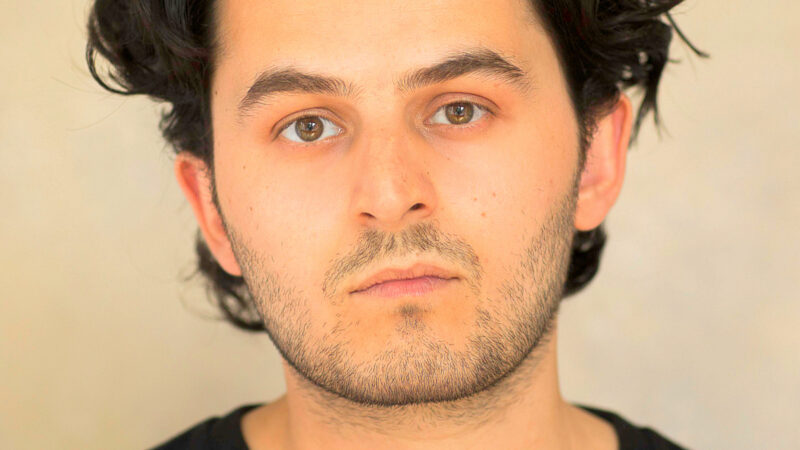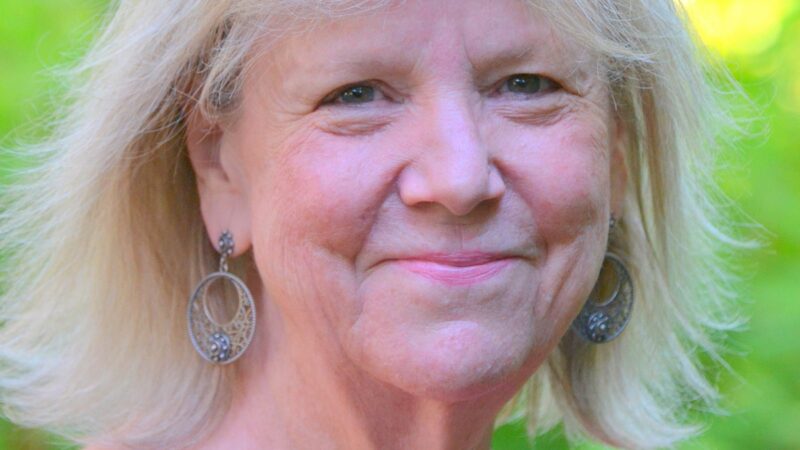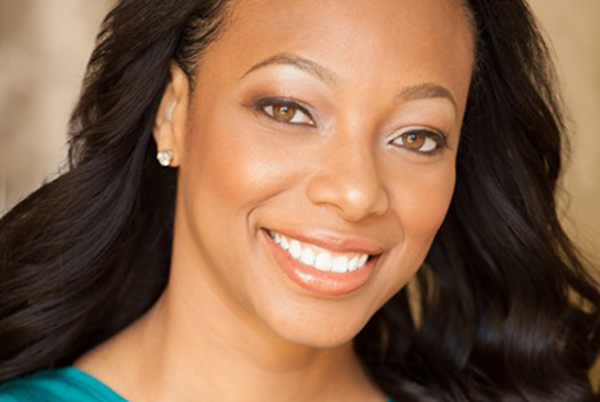
Meiko Taylor was born in Chicago, IL but as a foster child, she was sent to live with an uncle in the San Francisco Bay Area. In elementary school Meiko would write little skits and force her siblings to rehearse and perform them at every holiday dinner. Meiko Taylor went on to do theater in high school, but something in me as a little kid knew I was meant to be a Director. Your destiny is rarely a straight line. Meiko went through college getting a degree in Psychology and an MBA. Meiko Taylor spent several years working in Corporate America doing project management, and then several more working at a group home with kids in foster care and on probation.
Everything came full circle when Meiko moved to Los Angeles to pursue acting. Meiko wasn’t booking any acting jobs. But out of one of my failed auditions, she was invited to attend a directing workshop. Meiko started directing theater and fell in love with it. From there she launched her own film production company Infinite Films. Filmmaking married all the skills she had been acquiring up to that point. Her project management and acting skills definitely came in handy.
Meiko Taylor Director Reel 2013: http://t.co/XUWzwKaqFZ via @youtube
— Meiko Taylor (@MeikoTaylor) August 6, 2013
Did you study what you do
Yes, I did study what I do, but not in the traditional go to school, fork over $90k, and get a degree, way. I had already paid for my MBA so there was no way I was going to add more debt. But, I am a firm believer in having enough respect and integrity for your craft to really learn the ins and outs. I began getting on set, volunteering my services for free at Church. I was able to connect with a number of actors who had written their own projects but didn’t know how to produce and direct them.
I started partnering with them and working. In doing my work, I started to identify areas that I wanted to improve my skills, i.e. how to make my films look more cinematic, how to use camera angles, lighting, blocking to elicit emotions in the audience, etc. I went online and checked out the syllabus of film classes and started reading those books. And I sat with my crew and asked questions, my editor taught me how to edit, got insight on sound mixing, etc. I just became a real student of all areas of filmmaking. One more thing I’ll say is it’s not enough to be a great artist, you have to know the business side too. Producing my latest project TURNT, I am learning more and more about that aspect as well.
What is your filmmaking process
I typically start by reading the script and collaborating with writer on any questions or changes I have. I focus on areas of script that I don’t understand or scenes that don’t make sense from an acting standpoint. I’m always asking myself, can my actors justify this action or emotion? If the answer is no, then it must be fixed. Then I work on what look and feel I want. I tend to gravitate towards dark, moody, lots of contrast, with pops of color. I watch a ton of films that relate to my project to get a sense of angles, pacing, music, etc that is typical for that genre.
Then I go through my script and determine what I want the audience to feel and what I want to highlight and/or convey in each scene. From there I begin to craft a preliminary shot list and/or story board. At this point, I begin to collaborate with the Director of Photography. I look to my DPs to take my ideas to the next level and we finalize the shot lists together. Working in indie film, I have found it most cost and time effective to have a plan for your shots mapped out before stepping on set. I also rehearse major scenes with actors ahead of time and really work on digging into the characters and motivations prior to getting on set.
Another time saving tip, I create shot lists with the edit already in mind. This cuts down on getting unnecessary coverage that I know I won’t be using. I work with some amazing actors so we do play and remain flexible on set, but I always have a general idea of where I want the scenes to go and if we have time, we play around outside those parameters.
Love working alongside my scene partner/son Triston. Team work makes the dream work! #ladydirector #workingmom pic.twitter.com/2WFmseDnAe
— Meiko Taylor (@MeikoTaylor) April 30, 2014
Tell us about the work you have directed
I have done theater, web series, commercials, features, shorts, music videos, actor reels, etc. Pretty much, you name it, I’ve tried it. I work on client projects as well as develop and produce my own. For clients, I have directed a Snicker’s Commercial, Web Series called The Jenkins, Several Short Films including two coming up: Where Is God, and By His Stripes.
As far as my own projects, I tend to work on films that have a message and that can hopefully inspire dialogue and change within the community. My latest feature film which I wrote and am directing is called TURNT. It’s about a rapper who turns to sex trafficking young girls to build his dream career. It is aimed at teaching young girls to recognize some of the tactics used by traffickers to recruit them.
Do you take courses to improve your craft
I personally don’t take courses because I initially couldn’t afford to. I do encourage people to do so, however. I think any way you can gain additional knowledge about your craft is worth it. But I also want to encourage those who may be like me not to give up on your dreams if you don’t have access to more traditional forms of getting a film education. With the internet, indie film projects, as well as talking to other crew members and fellow directors, there is a way to gain the knowledge and experience you need to be successful.
There was a year that I directed 8 projects in 6 months. I was talking to my mentor about potentially going back to school for my MFA. He asked me, “Why?” I told him because I wanted to gain more experience as a director. He responded that I had directed more project in the last 6 months than he did during his entire MFA program. He said if you want to be a director then DIRECT!

How do you turn an idea into a screenplay
Just write it. Simple as that. DO THE WORK.
Explain your writing process
I have so much respect for writers. Though I have written a number of my own projects, I don’t consider myself a writer. I don’t know structure, I get overwhelmed sometimes by how many ways you can choose to tell one story, etc. I’m afraid I can’t offer any real tips on that because I’m sure the way I go about it is completely unconventional.
I will say I am fortunate enough to have some great artists around me. I don’t have to have the degree in screenwriting because I have a number of really good friends who do. I usually write a draft and then send it to them for review, notes, and feedback. Then I do a table read with some trusted advisors or friends or actors and get more feedback, do more re-writes. Again, being an indie filmmaker where every dollar and every second counts, I tend to write with locations, actors, and available equipment already in mind.
The final thing I will say about the writing process is be open to feedback. First seek to understand and then to be understood. When you hear more than one person saying something is confusing, don’t try to explain it to everyone, because you won’t be in the theater to explain when the audience is confused by that same thing. Let go of ego, get out of your own way, and fix it. If you focus is on serving the film rather than yourself, your gut will always guide you to making the right changes.
What do you want to change about the film business
There are so many outlets here in Los Angeles that I feel let you get just so close to your dreams, but not quite. You can go to seminars or classes and be in the room with executives that could change your life if they gave you a yes. Problem is, they are often just there to give you information, and go on their way. I am encouraged to see there are more programs popping up that actually offer training and access to real opportunities. I would like to see that trend continue.
How did you get into the film business
I started directing theater at a church for free. Hint to your purpose: when you find something that you love and would do it for free, that’s probably a clear indicator that you have found your purpose. All that’s left to do is go out and figure out how to monetize it.
What do you want to be remembered for
I want to be remembered for the depth and the width of the love that I gave to everyone God entrusted me to touch in some way.
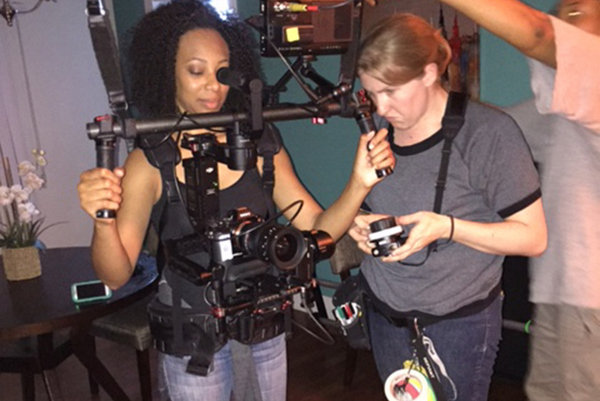
INTERVIEWS
In Conversation with Michael Oblowitz Director of Confidential Informant
Confidential Informant stars Mel Gibson, Dominic Purcell, and Kate Bosworth
more interviews




